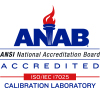 Posted on
Posted on

As communities continue to grow and become more developed around the world, one common ingredient is inevitably used: concrete. From sidewalks to floors, driveways, house foundations or skyscrapers, concrete is the prime choice as a base for creating sturdy structures. Concrete is also growing in popularity for more aesthetic interior applications as well, such as counter tops, sinks and other custom formations.
Despite concrete’s growing list of uses, the steps required to create it have not really changed. The process is quite time consuming and requires specific environmental conditions to create an ideal product with adequate strength and sturdiness.
Once concrete has been mixed, it is poured into the desired location and left to harden, a process referred to as curing. The American Concrete Institute (ACI) generally recommends a minimum of seven days of curing for the product to become hard. Depending on temperatures and specific mixtures, some concrete requires as much as a 28-day curing period.
Time is one factor, but temperature also plays an important role in the correct curing of concrete. Ambient temperatures must remain above 40 °F during the entire curing process. Of course, higher temperatures can be used to speed up the curing process, however, lower temperatures with longer curing times tend to produce the strongest and hardest concrete.
Surprisingly, concrete hardening is not actually the product drying, but is rather a chemical reaction between the concrete and water. For this reason, keeping the concrete wet during the curing process is crucial. If the concrete dries out, it has higher chances of cracking and will become permeable, an undesirable trait causing weakness in the final product.
MadgeTech’s line of concrete curing data loggers are designed to accurately measure the internal temperature of the concrete throughout the entire curing process to ensure proper temperature thresholds are maintained. Thermocouple probes are used to measure the internal temperature of the product while curing, providing a thorough record of the process instead of just the ambient air temperature
Although MadgeTech offers a wide selection of data loggers for monitoring concrete, the RFTCTemp2000A stands out as the top choice for many. This wireless data logger accepts Type K thermocouple probes and measures ambient temperature simultaneously. The RFTCTemp2000A records and writes temperature readings to memory but can also transmit data in real time to the MadgeTech Data Logger Software and to the MadgeTech Cloud.
With an internet-enabled PC or Laptop at the curing location, data can be instantly sent to the MadgeTech Cloud for remote access. This allows users to monitor temperature levels for multiple job sites or facilities from any PC, mobile phone or tablet, anytime, from anywhere. Eliminating the need for constant checking and manual measuring on site.
For more information on data loggers and their role in concrete curing, please contact MadgeTech’s technical sales staff at (603) 456-2011.










